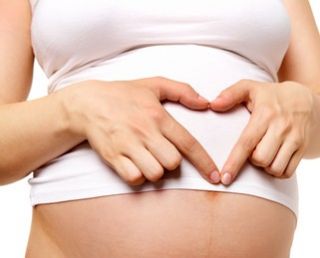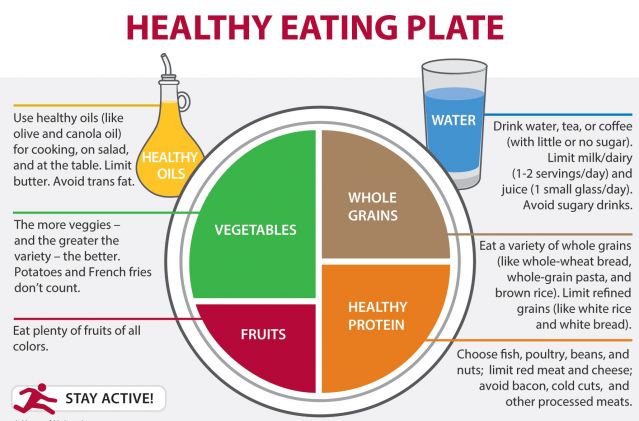Diet
Healthy Maternal Diet Reduces Risk of Preterm Delivery
Mothers and fathers should both eat healthfully when having a baby.
Posted March 7, 2014

A March 2014 study from Scandinavia found that pregnant women who eat a healthy diet have a significantly reduced risk of preterm delivery. The new study titled, “Maternal Dietary Patterns and Preterm Delivery: Results From Large Prospective Cohort Study” was published in the British Medical Journal (BMJ).
After adjusting for several confounding factors, the researchers found that “a balanced diet including vegetables, fruit, whole grains, fish, and water as beverage” was associated with a significantly reduced risk of preterm delivery. This was especially true among women having their first baby, as well as spontaneous and late preterm deliveries.
Preterm delivery—defined as spontaneous or iatrogenic delivery before gestational week 37—is associated with significant short term and long term neonatal morbidity and almost 75 percent of all neonatal deaths. In the Nordic countries, the prevalence of preterm deliveries is about 6 percent, in the United States the prevalence is almost double that, at about 12 percent. In most cases of preterm delivery the cause is unknown, although several potential risk factor have been identified.
The researchers from Sweden, Norway, and Iceland were curious to discover if there was a link between maternal diet and preterm delivery. For the study they compiled and analyzed preterm births among 66,000 women between 2002 and 2008. The participants in the study completed a validated food frequency questionnaire on dietary habits during the first four to five months of pregnancy.
What Maternal Dietary Habits Benefit an Unborn Child?

Researchers continue to discover that early nutrition and physical activity play a critical role in the cognitive, emotional, and behavioral development of children. The results from a five year study called NUTRIMENTHE, released in September 2013, found that nutrition during pre-birth and in early life literally "programs" the long term health, well-being, brain development, and cognitive performance of children.
The NUTRIMENTHE study found that taking folic acid during the first three months of pregnancy can reduce the likelihood of behavioral problems during early childhood. Eating oily fish was also found to be very beneficial. Not only because the omega-3 fatty acids are 'building blocks' for brain cells, but also for the iodine content which is believed to improve reading ability in children when measured at age nine.
In January of 2014, I wrote a Psychology Today blog post titled, “Pregnant Mother's Diet May Rewire Baby’s Brain for Obesity” based on a study from Yale University which found that children of obese mothers who eat a high-fat diet may be more likely to have metabolic disorders and be at a higher risk of becoming obese and developing diabetes.
Fathers-to-Be Should Make an Effort to Be Healthy Too

Historically, the emphasis for a baby’s healthy development has focused on the mother’s health throughout a pregnancy. However, there have been a few studies recently showing that the physical health and fitness of the father at the moment of conception can greatly impact the health of his children.
New research shows that both parents can pass on a hereditary predisposition for obesity and diabetes based on their fitness and health at the time of conception. In January of 2014, I wrote a Psychology Today blog post titled “Physically Fit Fathers May Have Healthier Children” based on a study which showed that obese fathers who consumed a high fat diet at the time of conception passed on a genetic predisposition to their children to develop obesity and/or diabetes.
There is growing scientific evidence that should inspire every father-to-be to start exercising more and eating healthier before conceiving a baby. In terms of specific dietary guidelines, I don’t like rigid rules or recommend ever changing your diet radically based on a food fad ... like eating a quart of blueberries every day. The Healthy Eating Plate below offers some practical guidelines:

Conclusion: Eating a Healthy Diet Benefits Everybody
The new findings from Scandinavia give solid proof that a healthy diet can reduce the risk of preterm delivery. In an editorial response to this study, Professor Lucilla Poston at King's College London summed it up by simply saying, “healthy eating in pregnancy is always a good idea.”
Most of the research on eating a healthy diet is common sense. That said, it’s always a source of motivation to have a scientific study confirm that making an effort to change your daily habits—like eating a healthier diet—can really make a difference in the well-being of you and your children.
If you'd like to read more on this topic, check out my Psychology Today blog posts:
- “Pregnant Mother's Diet May Rewire Baby’s Brain for Obesity”
- "The Brain Benefits of Healthy Diet and Fitness in Early Life"
- "Polution and Maternal Stress Harm Babies During Pregnancy"
- "Physical Activity During Pregnancy Benefits Babies' Health"
- "Breastfeeding Boosts the Brain Development of a Baby"
- “Early Loving Touch Makes a Lifetime of Difference for a Baby”
- "The Neuroscience of Calming a Baby"
- "Parental Warmth Is Crucial for a Child's Well-Being"
- "Loving Touch Is Key to Healthy Brain Development"
- “New Dietary Rules: ‘Low-Fat’ Is Out, Olive Oil Is In”
Please follow me on Twitter @ckbergland for updates on The Athlete’s Way blog posts.




